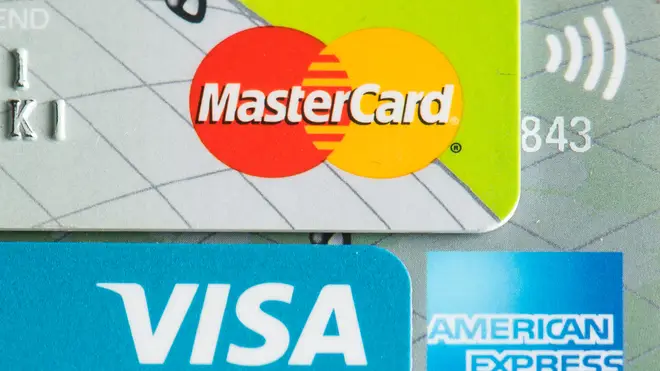
Lewis Goodall 10am - 12pm
28 September 2020, 10:44

The average introductory zero-interest period on such cards has fallen by just over a month since the start of July, according to Moneyfacts.co.uk.
Credit card providers’ introductory 0% balance transfer periods are shrinking, in a blow to those looking to ease the cost of their debts.
The average introductory zero-interest period on such cards has fallen by just over a month since the start of July, analysis by Moneyfacts.co.uk of the deals currently on the market found.
At the start of July, the average 0% period on offer lasted 553 days. Now, it is 520 days – 33 days shorter.
People may turn to such cards to provide themselves with “breathing space” on their debts in the knowledge that they will not incur interest for a set period of time. There is often a balance transfer fee to pay though, for moving the debt over to the card.
Moneyfacts’ analysis found that while some providers had increased the 0% periods they are offering, more had reduced them, meaning that the average zero-interest period has shrunk.
Rachel Springall, a finance expert at Moneyfacts.co.uk, said: “Credit card providers are tightening their 0% introductory balance transfer offers, and over the past three months, over a dozen cards have seen their terms slashed.
“This movement could well be attributed to the continued economic uncertainty surrounding the coronavirus pandemic and the subsequent impact on how much risk providers are willing to take and how consumers may be situated financially.
“Consumers searching for the very best deal today will find a chart-topping 29-month interest-free balance transfer offer from TSB, but even this deal has been tweaked over the past three months. At the start of July, it had offered 30 months, which was cut down 28 months and then has recently risen to 29 months.
“This demonstrates how important it is for consumers to act quickly if they are hoping to secure a lucrative deal.”
Ms Springall added: “Balance transfer fees are also being adjusted, and nine cards over the past three months have seen their introductory charge increased.
“Borrowers taking out one of these deals today would then be paying more up-front to transfer their debts than before, so they may wish to consider alternatives.
“Consumers could instead look for a card that charges a small or no balance transfer fee, but they would be wise to work out if they can repay their debts before interest applies, as typically, transfer fee-free cards have shorter interest-free terms.”
Ms Springall suggested that some people may want to check their credit report before applying for a new card, to make sure that there is nothing that could go against their application.